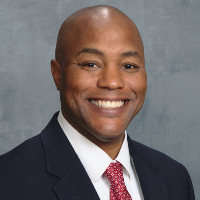 Cable DUI-DWI Lawyers, Ohio
Cable DUI-DWI Lawyers, Ohio
Sponsored Law Firm
-
 x
x

Click For More Info:
-
Keches Law Group
122 Dean Street Taunton, MA 02780» view mapSocial Security, Personal Injury, Workers Comp. Protecting Your Rights
Our team of experienced personal injury attorneys has over 130 years of combined experience representing individuals and families injured due to the negligence of others.
800-713-8650
Sponsored Lawyers
1-10 of 25 matches
Criminal, DUI-DWI, Felony, Traffic
Life can throw you a curveball. You need someone in your corner that understands good people can make mistakes. Michael also understands that good people are also often accused of something they simply did not do. Michael J. Hayes, Esq. knows all too well there are two sides to every story. Let Michael J. Hayes, Esq. represent your side and fight for your rights.
(more)Accident & Injury, Criminal, DUI-DWI, Traffic, Divorce & Family Law
In 1991, I earned a Juris Doctorate Degree (law degree) from the University of Dayton School of Law. While attending law school, I received the American Jurisprudence Award from my Insurance Law professor for obtaining the highest grade in the class. I was licensed to practice law in Ohio that same year (1991) and immediately established a private law practice in downtown Dayton, Ohio across the street from the courts. I have been in the same office building for over 32 years! I also proudly served as a Magistrate in the Montgomery County Common Pleas Court from 1992 until 2000 for The Honorable Judge George Gounaris. During my 32 year career, I have focused my law practice on Divorce, Criminal Defense, OVI/DUI Defense, Traffic Law and Personal Injury cases so that I could become proficient in these areas and provide the best possible legal services. I received the Appointed Counsel Award from the Montgomery County Common Pleas Court for my representation of indigent defendants, and the Top 10 Attorney Award (for Ohio) from the National Academy of Criminal Defense Attorneys. I have been interviewed by local and national news media, including The Associated Press, and had the distinct privilege of arguing in the Supreme Court of Ohio. Some of my cases set legal precedent, which means they impacted the status of the law in Ohio. I was invited into the prestigious National Trial Lawyers, Top 100, and Ohio Super Lawyers which is only attainable by a small percentage of attorneys in Ohio. I am rated "Distinguished" by Martindale Hubbell, and "Superb" by Avvo.com which is the highest rating for attorneys. I am rated A+ by the Better Business Bureau, and listed in Who's Who in American Law. I have earned the respect of my peers in the legal community, and have built long-lasting, professional relationships with judges, prosecutors, attorneys and other individuals that serve in our system of justice. My MISSION has always been, and will always be, to make sure my clients are treated fairly no matter their race, sex, sexual orientation, religion, age or any other trait that sets them apart from others. I certainly have the experience and success that my clients need, and I am very happy to help them through difficult times.
(more)Criminal, DUI-DWI, Misdemeanor, Felony, Juvenile Law
Mr. Nelson has tried well over a hundred juries, including high profile felonious assault, rape, murder, robbery, arson and insurance fraud cases. After obtaining his undergraduate degree from Wittenberg University and his JD from the University of Cincinnati, Mr. Nelson spent the better part of 23 years at the Hamilton County Prosecutor’s Office where he served as an Assistant Chief Prosecuting attorney. Suhre & Associates is a premier DUI and criminal defense firm serving Dayton, OH and the surrounding areas. We handle all criminal law matters including DUI, domestic violence, theft crimes, sex crimes, drug crimes, and more. Call today for a free consultation.
(more)


 Sean Flaherty Taunton, MA
Sean Flaherty Taunton, MA AboutKeches Law Group
AboutKeches Law Group Practice AreasExpertise
Practice AreasExpertise



